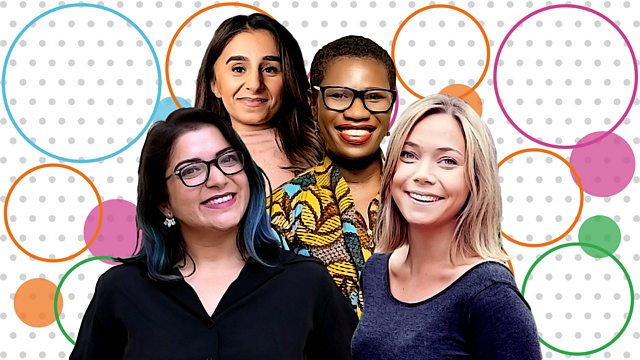Bonus podcast: The Conversation, ���˿��� 100 Women
Kim Chakanetsa and a panel of women discuss whether some changes made in the light of the Covid-19 pandemic could encourage more inclusive and supportive societies.
Celebrating the ���˿��� 100 Women list 2020, Kim Chakanetsa and a panel of inspirational and influential women discuss whether some changes made because of Covid-19 restrictions could be seen as positive. They answer questions about bringing communities together, supporting lonely people and increasing flexibility for more inclusive employment.
Shani Dhanda is an award-winning disability specialist and social entrepreneur from the UK. She founded the Asian Woman Festival and Asian Disability Network. The pandemic has proved that flexible and home working is viable, and she wants to make sure our new online solutions are here to stay so that the world remains accessible to us all.
Karen Dolva has been seeking technological solutions to involuntary loneliness since 2015. A co-founder of No Isolation based in Norway, she’s helped develop a telepresence robot for children with long-term illness, and KOMP, a one-button screen for seniors. With reports from around the world of people feeling increasingly isolated because of Covid restrictions – should tech like this be used more widely?
Yvonne Aki-Sawyerr, became Mayor of Freetown, Sierra Leone in 2018 with an inclusive vision of the city's renewal and a three-year plan to "Transform Freetown" and tackle environmental degradation and facilitate the creation of jobs in the tourism sector. #FreetownTheTreeTown was launched this January and already over 450,000 seedlings have been planted to address flooding, soil erosion and water shortages faced by the city. She says we can turn frustration and dissatisfaction into positive change. What can we learn from such an approach post-Covid?
Aditi Mittal is India’s best known female stand-up comedian, who is finding new ways to perform safely and online. She also hosts the Women in Labour podcast, and hopes that the increased time at home for many male workers in India has shone a light on the amount of time required to run a household, something that has always been a big barrier to the female workforce.
Produced by Jane Thurlow and Caitlin Sneddon
Image from left: Aditi Mittal (credit Nanak Bhatia), Shani Dhanda (courtesy Shani Dhanda), Yvonne Aki-Sawyerr (credit TJ Bade) Karen Dolva (credit No Isolation)
Podcast
-
![]()
The Outlook Podcast Archive
True stories of ordinary people and the extraordinary events that have shaped their lives


